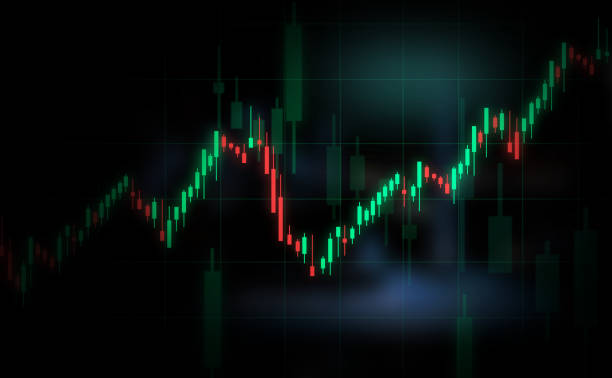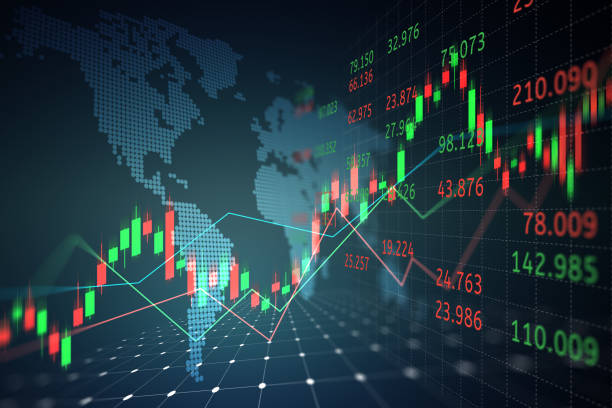International Trade News on Stock Markets has a profound impact on markets. These news items not only reflect global economic conditions, but also directly affect investor sentiment and market movements. When news about trade deals, tariffs, or trade disputes emerges, market reactions correspond to the prevailing global economic uncertainties. To understand the impact of such news on the market, we need to examine these effects in detail.
Tariffs and Trade Barriers: International Trade News on Stock Markets

Tariffs and trade barriers, a crucial part of trade news, directly impact stock markets. When a country imposes tariffs on another, the cost of exported goods from that country increases, disrupting global supply chains. This results in a decline in profits for affected companies and a drop in their stock prices. For instance, if the USA imposes tariffs on China, Chinese company stocks fall, impacting global markets as well.
Trade Deals: Investor Sentiment and Stock Prices
Trade deals and agreements can influence stock markets either positively or negatively. When trade deals between two countries are announced, markets often react positively, seeing it as a sign of stability in global trade. Investor sentiment improves, leading to higher stock prices. Conversely, if the terms of the deals are unfavorable, markets may react negatively, causing stock prices to drop. For example, during the NAFTA renegotiation, markets reacted positively as it signaled trade stability.
Global Trade Wars: Market Volatility and Uncertainty
Global trade wars, such as the USA-China trade war, increase market volatility and uncertainty. Trade wars disturb the balance of global trade, leading to uncertain conditions for investors. This results in increased market fluctuations and challenges in making long-term investment decisions. During trade wars, short-term volatility is high, but assessing long-term trends becomes challenging.
Currency Fluctuations and Stock Market Reactions
Currency fluctuations are also directly related to international trade news and affect stock markets. When a country’s currency value falls, its export goods become cheaper, improving the trade balance. However, if the currency value drops excessively, the cost of imported goods rises, potentially triggering inflation. This causes fluctuations in stock prices and market indices.
Economic Indicators and Trade News

Economic indicators such as GDP growth, unemployment rates, and inflation figures also affect stock markets. When trade news aligns with economic indicators, market reactions are more predictable. For example, if trade news is accompanied by positive economic indicators, stock prices may rise. Conversely, if trade news is linked with negative economic data, market reactions can be negative, leading to a drop in stock prices.
Geopolitical Tensions: Impact on Stock Markets
Geopolitical tensions, such as political instability and conflicts, can significantly impact stock markets. When international trade news coincides with rising geopolitical tensions, investors become uncertain and shift their investments to safer havens. This results in sudden dips and fluctuations in stock markets. Global conflicts and political instability reduce investor confidence, causing stock prices to fall.
Sector-Specific Impacts of Trade News
The impact of international trade news can vary across specific sectors. For example, if trade barriers affect the agriculture or technology sector, stocks in those sectors are directly impacted. Volatility is observed in sectors affected by trade news, and investor sentiment reflects sector-specific changes. For instance, trade barriers on the technology sector may negatively impact tech stocks.
Long-Term Trends and Trade News
The relationship between long-term trends and international trade news is complex. While short-term news and events cause market fluctuations, understanding long-term trends is crucial. Long-term investment decisions are adjusted according to international trade trends. If trade news indicates long-term trade agreements and policies, stock markets may experience stability and growth.
Media Coverage and Investor Sentiment

Media coverage also affects stock markets through international trade news. Extensive media coverage of trade news has a direct effect on investor sentiment. Positive media coverage uplifts markets, while negative coverage can depress them. The role of media shapes investor perception and influences market movements. Stock prices may fluctuate based on media coverage.
Regulatory Changes and Market Reactions
Regulatory changes related to trade news directly affect stock markets. When trade regulations change in a country, new opportunities or risks are created for investors. The impact on the market is reflected in the performance of stocks based on these regulations. If new regulations are favorable, stock prices may rise; if unfavorable, stock prices may fall.
Historical Trends and Current Impact
Analyzing historical trends helps in understanding the current impact of International Trade News on Stock Markets. By examining the effects of past trade events and news on stock markets, future trends can be predicted. Historical data analysis aids investors in better understanding the impact of current trade news, allowing for the formulation of long-term investment strategies and risk management plans.
